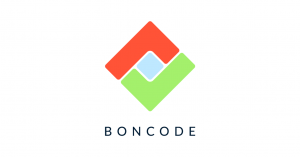Japan is well-known for its love of quality. Earlier this year, myself and other members of the BonCode team traveled to Japan to visit our main reseller, existing clients, and prospective clients. It was a truly inspiring trip. Here’s what we learned from Japan.
By Koen Naarding, IT Consultant, BonCode
Why we visited Japan
“When walking the streets of Japan, everything was clean and tidy – much like the culture around software. On this trip, we learned a lot about how organizations in Japan approach software quality. It was a very fruitful experience.”
– Koen Naarding, IT Consultant, BonCode
The purpose of our trip was to discover what drives the organizations using our solutions in Japan, and how we can best help them succeed. Not only was it a chance to explore how tech-based companies operate in the country, it was also a great opportunity to see how our partnership model can give scalability to our consulting services outside the EU market.
Japan is a promising market for BonCode, with a growing number of companies implementing our solutions for assessing and monitoring software quality. We felt that, to know that culture better, was the best place to start. One of our main selling partners in Japan is CTC – a large technology consultancy firm. Visiting the country gave us an opportunity to strengthen that partnership and learn from local experts.
CTC facilitates customer success by offering a range of technologies to end customers across different industries. For example, one of their clients is a major Japanese automotive brand. BonCode’s tool-based consultancy for software quality is one of many tech solutions in CTC’s toolkit.
3 things we learned from Japan
Here are 3 key learning points from our visit to Japan:
1 Software development is well-planned
From the organizations we visited in Japan, it became clear that the market has a mature and well-organized approach to software quality – and software management more broadly – compared with some EU nations. In many ways, it unites both tradition and innovation.
A great example is the implementation of new software. Generally speaking, the same structure and management processes are always applied. We noticed that the implementation of new software was well-thought-out: organizations make a plan and execute it.
2 Responsibility for software quality is clearly defined
There’s a very clear assignment of responsibility to certain processes and aspects of every project – including software quality. We saw our consultancy-based tooling being used by software managers to take responsibility for quality and to help guide their teams accordingly.
3 Business infrastructure has many layers
The business infrastructure in Japan also has many layers. For that reason, we’re still considering what the ideal partnership model might look like. We know our software is highly scalable, so the challenge is actually scaling consultancy, which means it makes sense to position ourselves as the technology expert and let local partners handle it.
Plans for the future
“The Japanese market has well-planned and well-structured processes for software development. What we’re doing is supporting that excellence with an early warning detection system for monitoring maintainability and mitigating risks moving forward.”
– Koen Naarding, IT Consultant, BonCode
We spoke to many prospects during our trip, and there’s a lot of interest in what we do. Our current selling model works because our resellers are our partners. They make the sale, then we get involved and guide most of the process.
Moving forward, it makes sense to have more localized implementation partners on the ground in other countries as well. This means they’re well-placed to handle the consultancy side of things, whilst we position ourselves more as a technical expert and technology partner.
Visiting the country highlighted some of the cultural differences between doing business in the Netherlands compared with Japan. This is really useful for future business relationships, whether that’s through selling partners or direct clients. We especially see the value of having local partners doing business in Japanese.
We also know that BonCode’s solution transcends verticals or specific sectors. Tooling that monitors software quality issues has huge business benefits. What we consistently see is that wherever custom software plays a business critical role, BonCode’s tool-based consultancy for software quality can make a difference.
Are you an IT consultant? Do you need practical solutions for assessing and monitoring your clients’ software quality? To discover how BonCode can add value to your offer, contact us today





